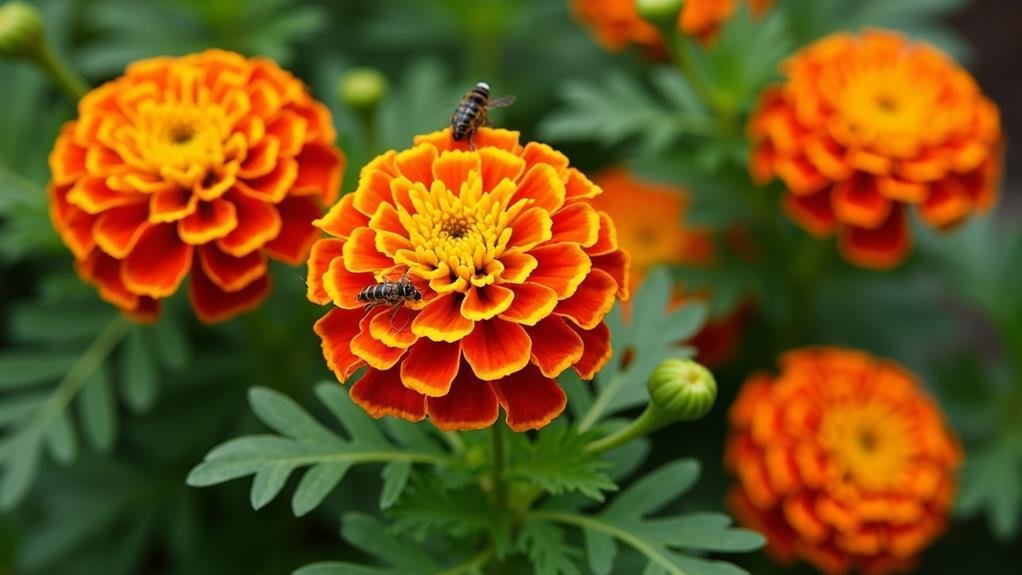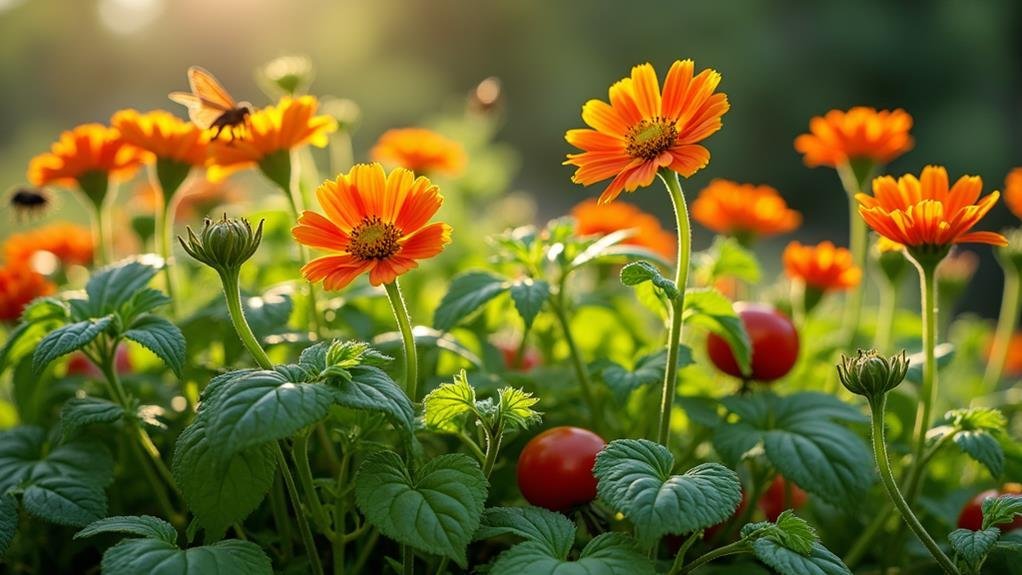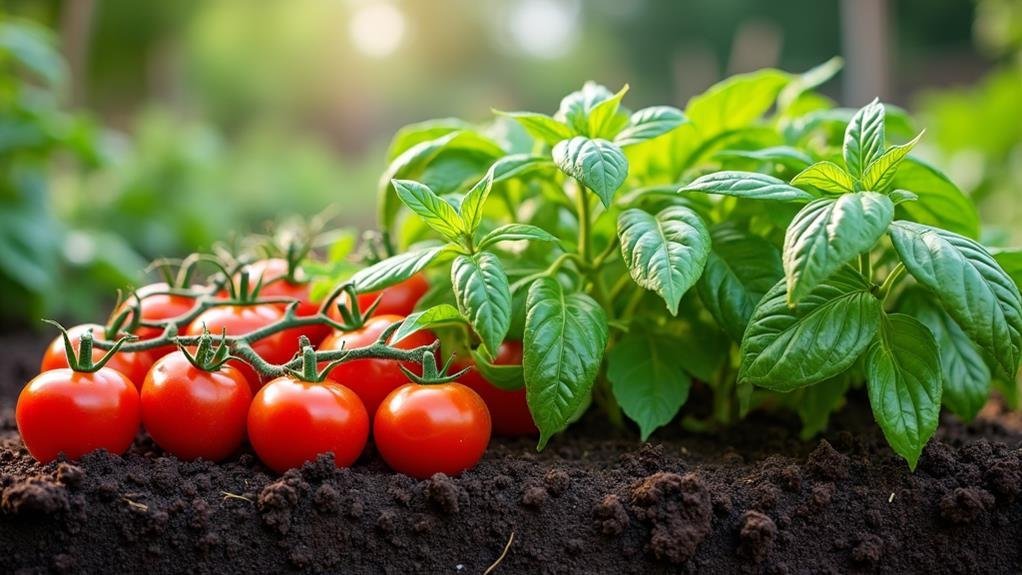When you're planning your organic garden, you might want to contemplate the benefits of companion planting. Certain plants can work harmoniously together to deter pests, boost growth, and even improve flavors. For instance, marigolds are known to fend off unwanted insects, while basil can raise your dishes and protect neighboring plants. Then there are nasturtiums, which attract pollinators with their vibrant blooms. Curious about how these plants can transform your garden's health and productivity? Let's investigate their unique advantages. Before diving into companion planting, it’s important to be aware of some common companion planting mistakes. One mistake is not considering the specific needs of each plant, such as water and sunlight requirements. Another mistake is failing to rotate crops and continuously planting the same companions in the same spots, which can lead to soil depletion and increased susceptibility to pests and diseases. By avoiding these common companion planting mistakes, you can maximize the benefits of companion planting and create a thriving organic garden.
Marigolds: Pest Deterrents

Marigolds are one of the most effective companions you can add to your organic garden for pest control. These vibrant flowers not only brighten up your garden, but they also serve a practical purpose. When you plant marigolds, you're employing a natural method to deter pests like aphids, nematodes, and whiteflies. Their strong scent confuses and repels these unwanted visitors, helping your other plants flourish.
You'll find marigolds are easy to grow, requiring little maintenance. Just plant them in well-draining soil and confirm they get plenty of sunlight.
As they bloom, they attract beneficial insects like ladybugs and lacewings, which feast on harmful pests. So, while you're enjoying the colorful display, you're also inviting allies into your garden.
Consider interspersing marigolds among your vegetables or herbs for maximum effect. This not only protects your plants but also creates a visually appealing landscape.
Plus, you might even find that marigolds can improve your garden's overall health and productivity. So go ahead and add these cheerful companions to your garden; your plants will thank you for it!
Basil: Flavor Booster
Adding basil to your organic garden not only enriches the flavor of your dishes but can also improve the health of neighboring plants. This aromatic herb pairs wonderfully with tomatoes, boosting their taste while attracting beneficial insects. When you plant basil near your tomatoes, you'll likely notice a lift in flavor that makes your summer salads sing.
Basil's strong scent can deter certain pests, like aphids and whiteflies, which are notorious for munching on your precious crops. By planting basil alongside your veggies, you create a natural barrier that helps keep these nuisances at bay.
Plus, basil thrives in similar conditions as many vegetables, making it an easy addition to your garden layout.
You can enjoy the fresh, vibrant flavor of basil in your cooking, whether it's in pesto, salad, or as a garnish on your favorite dishes. Just remember to snip off any flowers that appear; this encourages your basil plant to produce more lush leaves, ensuring a continuous supply for your culinary adventures.
With its dual benefits of flavor boosting and pest control, basil is a must-have companion in any organic garden.
Nasturtiums: Beneficial Nectar Plant

Nasturtiums are a fantastic addition to your organic garden, acting as a magnet for beneficial pollinators like bees and butterflies. These vibrant flowers not only bring beauty to your space but also play an essential role in supporting the ecosystem.
When you plant nasturtiums, you'll likely notice an increase in pollinator activity, which can help improve the yields of nearby crops.
Beyond attracting pollinators, nasturtiums are edible! Their peppery leaves and colorful blossoms add a delightful kick to salads or can be used as garnishes for dishes.
By including them in your garden, you're adding both visual appeal and culinary value. Plus, they're low-maintenance, thriving in poor soil and requiring minimal watering.
Another benefit is their ability to repel pests. Nasturtiums can deter aphids, whiteflies, and other garden nuisances, protecting your more vulnerable plants.
As a companion plant, they create a natural barrier, promoting a healthier garden environment.
Incorporating nasturtiums is a win-win. You'll improve your garden's biodiversity, enjoy delicious additions to your meals, and keep unwanted pests at bay.
What's not to love?
Conclusion
Incorporating marigolds, basil, and nasturtiums into your organic garden can greatly improve plant health and deter pests. Marigolds act as effective pest deterrents, while basil not only boosts flavor but also keeps unwanted insects at bay. Nasturtiums attract pollinators and offer edible options, enriching the garden ecosystem. By choosing these companion plants, you're not just enhancing your garden's liveliness but also creating a more harmonious environment for all its inhabitants. Happy gardening!




